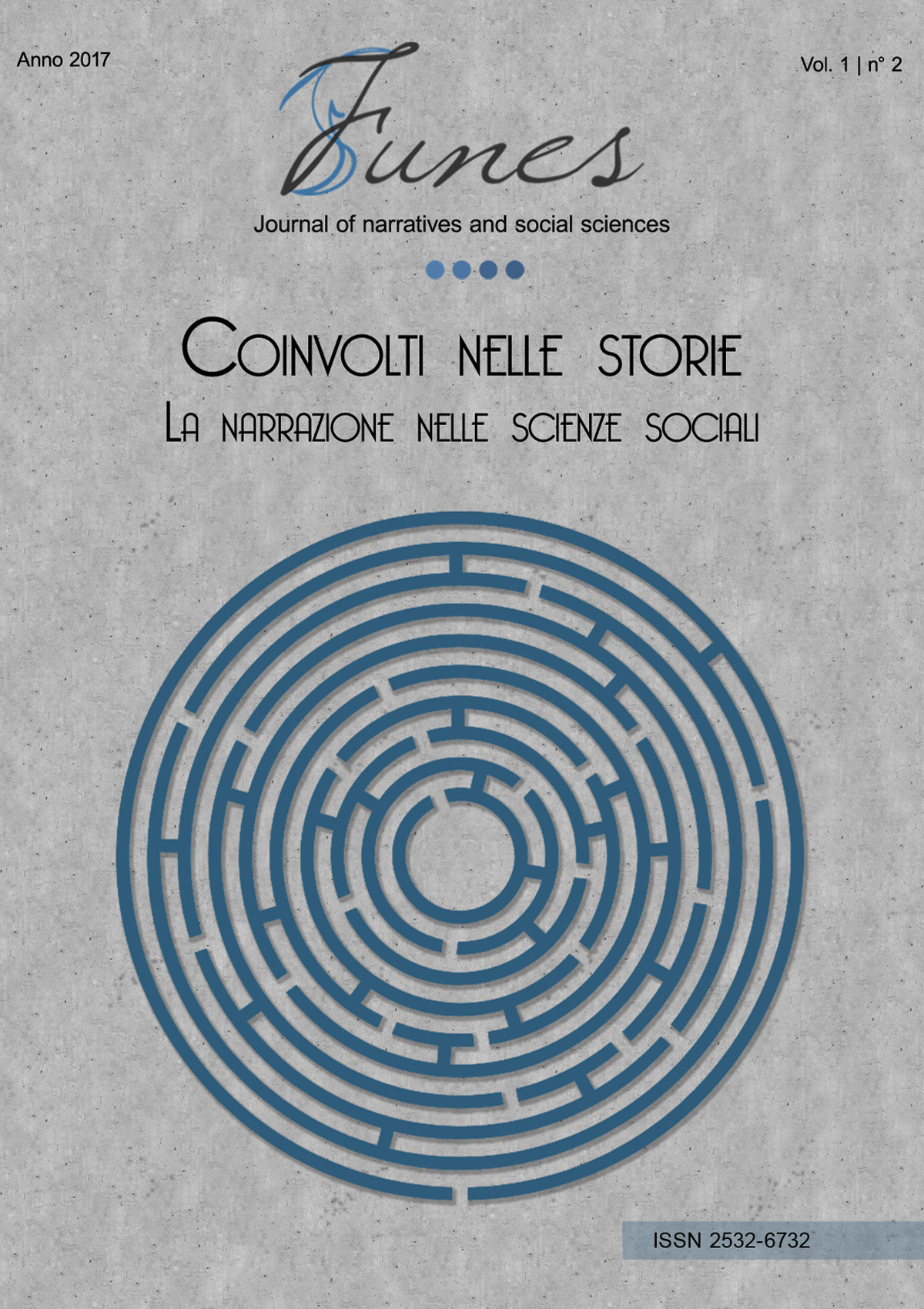Lecce as an Invisible Salon: Power and Power elites in a Souther Italian City
Abstract
The paper deals with the transformation of power at the local level, by making reference to Lecce, a middle city in the South of Italy (Salento), as a case study. The authors draw their empirical material from a wider sociological research on the same topic they have edited in 2014 (Cremonesini, Cristante, Longo 2014) and try to sketch how the crisis of traditional political parties has produced a renewed vitality of relational networks, yet by now unable to define a common strategy and to share common values and a common strategic project for city policies.
Keywords: power, elites, salons, relational networks, local government, South Italy
Downloads
Riferimenti bibliografici
Abu-Laban, B., 1965 “The Reputational Approach in the Study of Community Power: A
Critical Evaluation.” The Pacific Sociological Review 8 (1): 35–42.
Bourdieu, P., 1994 Raisons pratiques. Sur la théorie de l'action. Paris: Le Seuil; trad.it.: Ragioni
pratiche. Bologna: il Mulino, 1995.
CENSIS, 2011 Ridare slancio alla comunità. Note da un biennio di azioni comunitarie nei
territori .
Colonna, I., 2014 “Comunicare il potere. La narrazione mediatica dell’influenza.” Pp. 121-208
in Il salotto invisibile. Chi ha il potere a Lecce? e dited by Cremonesini, V., Cristante, S., Longo
M., Nardò (LE): Besa.
Cristante, S., (ed.), 2008 Enciclopedia di Smallville (volume I). Lecce 2007. Descrizione di una
campagna elettorale. Nardò (LE): Besa.
Cristante, S., Longo M., (eds.) 2010 Separati in casa. Lecce e la sua Università. Nardò (LE):
Besa.
Cremonesini, V., Cristante, S., Longo M., (eds.) 2014 Il salotto invisibile. Chi ha il potere a
Lecce? Nardò (LE): Besa.
Crouch, C., 2004 Postdemocrazia. Roma-Bari: Laterza.
French, R. M., 1969, “Effectiveness of the Various Techniques Employed in the Study of
Community Power.” The Journal of Politics 31 (3), 1969: 818–20.
Ferrarotti, F., 2004, Il Potere. Roma: Newton Compton.
Khan, S. R.,2012 “The Sociology of Elites.” Annual Review of Sociology 38: 361-377.
Mason, J., 2002 Qualitative Researching. Sage, London.
Mills, C. W., 1956 The Power Elites. New York: Oxford University Press.
Moyser, G., Wagstaffe, M., 1987 Research Methods in Elites Studies. Boston: Allen & Unwin.
Muscogiuri, M., 2014 “Il potere per le strade. Il racconto dei cittadini comuni.” Pp. 209-261 in
Il salotto invisibile. Chi ha il potere a Lecce? e dited by Cremonesini, V., Cristante, S., Longo
M., Nardò (LE): Besa.
Lotteria, K., 2014 “La rappresentazione dell’élite cittadina. Tra immaginario e rimosso.” Pp.
-306 in Il salotto invisibile. Chi ha il potere a Lecce? e dited by Cremonesini, V., Cristante,
S., Longo M., Nardò (LE): Besa.
Parsons, T., 1958 “A Sociologist Looks at the Legal Profession.” Pp. 370-387 in Id., Essays in
Sociological Theory. New York: The Free Press.
Parsons, T., 1991 The Social System. London: Routledge.
Punzi, C., 2014 “Osservare l’inosservabile. La massoneria tra segreto e senso comune.” Pp.
-424 in Il salotto invisibile. Chi ha il potere a Lecce? e dited by Cremonesini, V., Cristante,
S., Longo M., Nardò (LE): Besa.
Salento, A., Spina, F., 2014 “Potere degli avvocati e avvocati del potere. Una ricerca sul campo
forense a Lecce.” Pp. 65-119 in Il salotto invisibile. Chi ha il potere a Lecce? e dited by
Cremonesini, V., Cristante, S., Longo M., Nardò (LE): Besa.
Schutz, A., 1946 “The well-informed Citizen: an Essay on the Social Distribution of
Knowledge.” Social Research 13(4): 463–478.
Weber, M., 2004 “Politics as a Vocation.” Pp. 32-94 in Id. The Vocational Lectures Indiana:
Hackett
